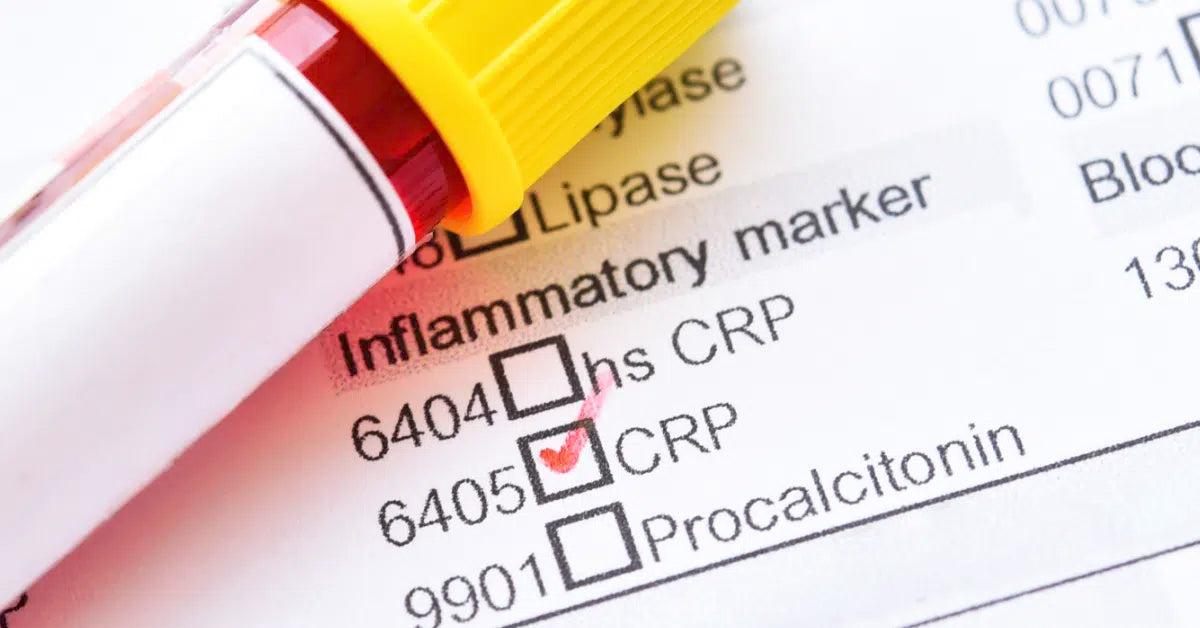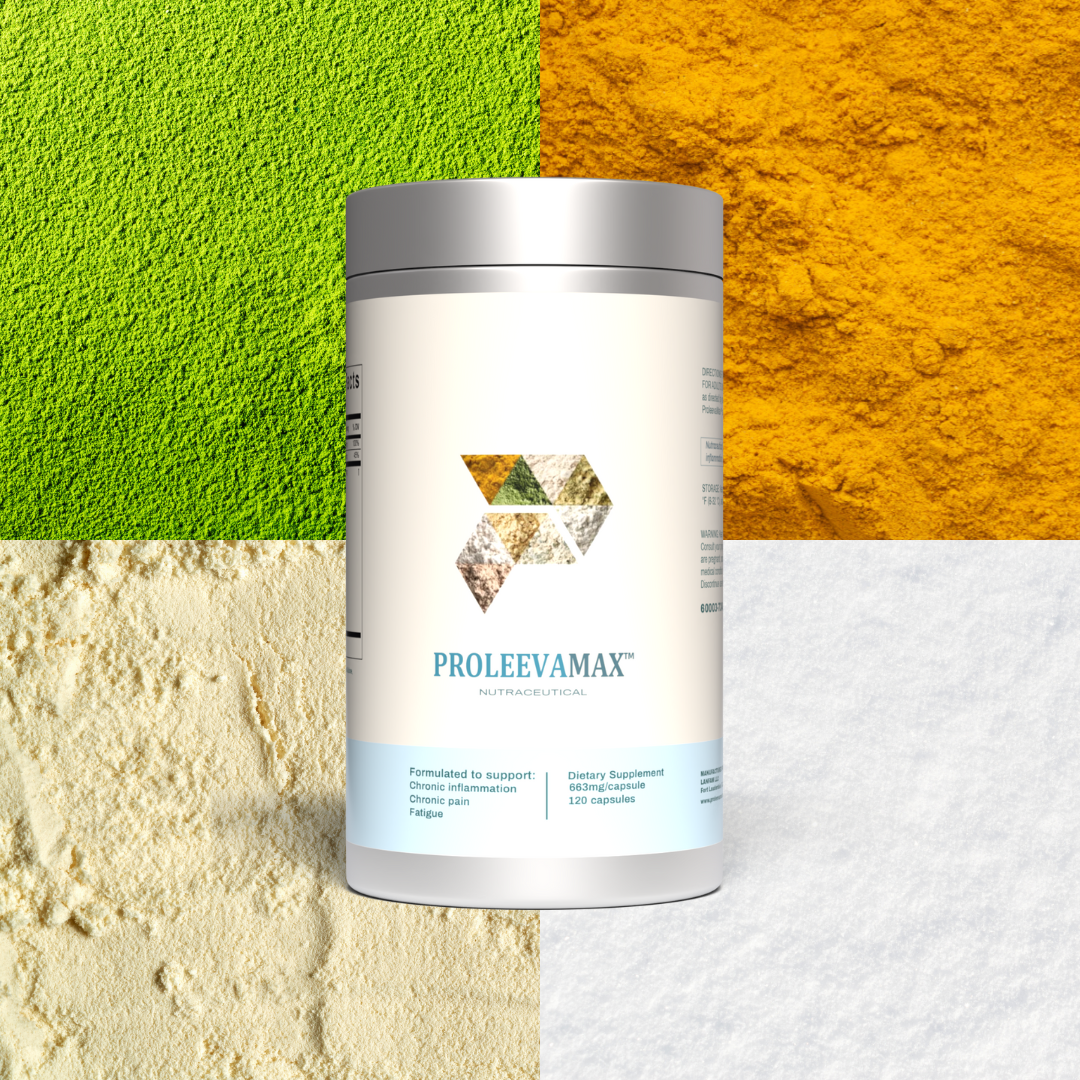C-reactive protein (CRP) is a key marker in the body that signals inflammation, providing critical insights into various health conditions, especially when evaluating risks for cardiovascular diseases, infections, autoimmune disorders, and even cancer.
Understanding what CRP levels mean and how they are interpreted can guide both diagnosis and management strategies in clinical practice.
CRP: Your Body's Inflammation Detective
Did you know your body has a secret messenger that reveals if something’s wrong? It’s called C-reactive protein (CRP), and it’s like the ultimate detective, tipping you off when your body’s in trouble – whether it’s fighting infections, dealing with inflammation, or even warning you about heart disease.
Ready to discover how CRP levels could be the key to unlocking better health – and how ProleevaMax can help you tackle inflammation head-on? Let’s dive in!
What are CRP Levels, and Why Should I Care?
CRP is a protein produced by your liver when inflammation is on the rise. Think of it as your body’s alarm system – it screams, “Hey! Something’s off here!” Whether it’s a cold, chronic illness, or something bigger like heart disease, CRP is the clue your body leaves behind.
If you want to stay ahead of the game, knowing your CRP levels can be a game-changer. It helps you and your doctor pinpoint health issues before they become serious.
How Can You Find Out Your CRP Levels?
Want to know your CRP levels? It’s as simple as getting a blood test. Seriously, just a quick prick, and boom – your CRP levels are revealed. There’s also a high-sensitivity version of the test (hs-CRP), which can detect even the tiniest bit of inflammation to predict your risk for heart disease. Pretty cool, right?

Discussing Elevated CRP Markers with Doctor
The Good, the Bad, and the Ugly
Your CRP levels can tell you a lot about what’s going on inside your body.
Let’s break it down:
Less than 0.3 mg/dL
You’re in the clear – healthy as a horse.
0.3 to 1.0 mg/dL
Could be minor stuff, like a cold or a little stress. No biggie!
1.0 to 10.0 mg/dL
Things are heating up—this could signal an infection or inflammation.
More than 10.0 mg/dL
Whoa! Your body’s in full-on battle mode, likely due to something serious, like an infection or major inflammation..
Want to keep your heart healthy? If your hs-CRP level is:
<1 mg/L
You’re at low risk for heart problems—keep doing what you’re doing!
1-3 mg/L
You’re in the “meh” zone—time to make some changes.
>3 mg/L
High risk—your heart might need some extra love and care.
(source)
What Do Elevated CRP Levels Indicate?
So your CRP levels are elevated – what’s that mean? It could be a sign of:
Chronic Inflammation
Conditions like rheumatoid arthritis, lupus, or other autoimmune issues.
Heart Disease
High CRP levels can signal heart problems before they even start.
Infections
Whether it’s bacterial or viral, CRP levels will clue you in.
The bottom line: CRP is the health detective you never knew you had, and it’s always working to keep you informed.
CRP Isn’t Just a Test - It’s a Wake-Up Call
When your CRP levels are up, it’s time to take action. That’s where ProleevaMax comes in. Sure, you can hit the gym, eat right, and quit smoking (all great ideas, by the way), but sometimes your body needs an extra boost.

Manage Elevated CRP Levels with a Healthy Diet
Managing Elevated CRP Levels
Several lifestyle changes can help reduce elevated CRP levels:
Regular Exercise
Reduces systemic inflammation.
Healthy Diet
Emphasizes anti-inflammatory foods like fruits, vegetables, and whole grains.
Quitting Smoking
Smoking cessation is crucial as smoking is a potent trigger for inflammation.
Weight Loss
Reducing body fat can lower CRP levels, particularly in obese individuals.
For those with persistently high CRP levels due to chronic conditions, medications such as statins (for cardiovascular risk) or anti-inflammatory drugs (for autoimmune diseases) may be prescribed to manage inflammation and lower CRP.

ProleevaMax helps lower CRP levels
Why Use ProleevaMax?
Imagine giving your body a power-packed, all-natural defense system designed to fight inflammation at its core. That’s ProleevaMax – loaded with matcha green tea, turmeric (curcumin), and ginseng, it’s like the superhero squad of supplements. These ingredients have been used for centuries to combat inflammation, and now they’re ready to help you lower those CRP levels and feel amazing.
Plus, ProleevaMax isn’t just about lowering CRP – it’s about healing your body from the inside out. Whether you’re dealing with everyday aches, inflammation from stress, or something more serious, ProleevaMax gives your body what it needs to recover and thrive like:
Matcha Green Tea
Packed with antioxidants, matcha helps your body fight off inflammation like a ninja.
Turmeric (Curcumin)
The ultimate anti-inflammatory, turmeric has been used for centuries to heal.
Ginseng
Known for its healing properties, ginseng helps support overall health and energy.
And the best part? It’s backed by a 60-day money-back guarantee – so you can try it risk-free. Yep, that’s right. You’ve got nothing to lose … except inflammation!
Managing CRP Levels is About Living Your Best Life
Managing inflammation isn’t just about the numbers—it’s about feeling your best. You deserve to wake up every day feeling energized, pain-free, and ready to take on whatever life throws at you. And ProleevaMax can help you get there. It’s time to kick inflammation to the curb, lower your CRP levels, and live the healthy, vibrant life you deserve. Trust us, your body will thank you!
Frequently Asked Questions
What is considered a high CRP level? A CRP level above 10 mg/L is generally considered elevated and may indicate acute inflammation or infection. Levels between 3-10 mg/L may suggest a moderate risk of cardiovascular events or chronic inflammation.
Can stress cause high CRP levels? Yes, stress can contribute to elevated CRP levels as it can trigger inflammatory responses in the body.
How can I lower my CRP levels naturally? Lifestyle changes such as regular exercise, a healthy diet, weight loss, and smoking cessation can help lower CRP levels naturally.
Is CRP a definitive test for inflammation? While CRP is a sensitive marker for inflammation, it is not specific to any one condition and should be used alongside other clinical findings and tests.
Are CRP levels affected by medications? Yes, certain medications, especially anti-inflammatory drugs and statins, can lower CRP levels.
What is the difference between CRP and hs-CRP? hs-CRP is a more sensitive test that measures lower levels of CRP and is specifically used to assess cardiovascular risk.
ProleevaMax Is Here To Help!
Want to hear real success stories? Check out our video testimonials from happy customers who’ve turned their health around with ProleevaMax. Or if you're ready to take the leap, give us a call at (305) 504-8514 and chat with one of our experts.
Your health journey starts now – let ProleevaMax be your guide to a happier, healthier you!






